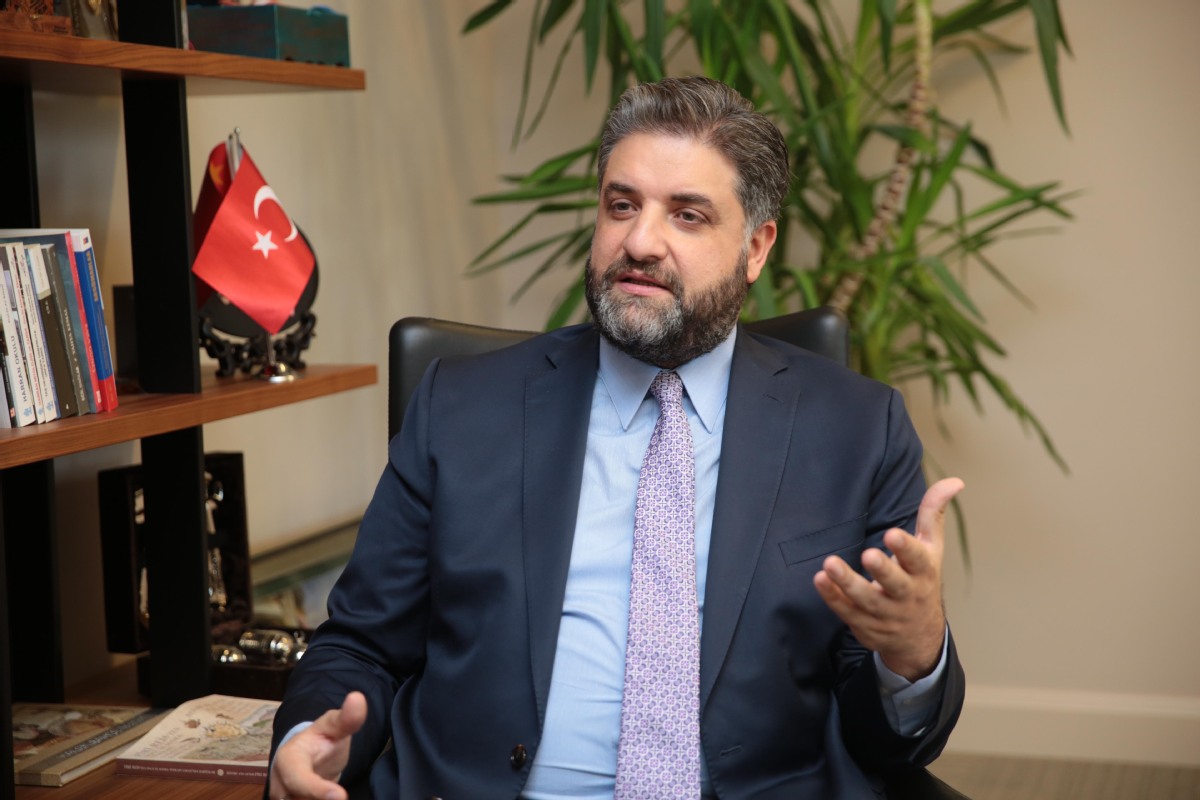Turkish ambassador: BRI promotes China-Turkey cooperation


China's Belt and Road Initiative (BRI) is "an essential mechanism for inclusive growth and development across the globe," said Turkish Ambassador to China Emin Önen in an interview with China Daily.
"At a time of disunity and ambiguity in the world, it will be a display of determination in taking forward a concrete proposal for advancing global interests," he added.
The BRI, as understood by the ambassador, is a champion of the global economy and enhanced connectivity and one of its important components is infrastructure building. China-Turkey cooperation in that respect has achieved a wide range of results. Fast and safe travel courtesy of China-made high-speed railway started for the Turkish people in July 2014 when the second phase of the Ankara-Istanbul high-speed rail line went into operation. It was China's first high-speed railway project in Europe.
The Ankara-Istanbul section was built by China Railway Construction Corporation (CRCC) and China National Machinery Import and Export Corporation, in partnership with two Turkish companies.
During the construction, besides language and culture barriers, the high proportion of bridges and tunnels, 42 percent of the entire construction, and the rich granite in the earth added extra difficulty to the project. In late 2013, Turkish President Recep Tayyip Erdogan inspected the rail's final testing and praised its high quality.
Thanks to the new high-speed railway, passengers can now travel the 533 kilometers between the two cities in four hours, about three to five hours faster than conventional trains.
"I have personally travelled lots of time on this line. It is a fast, very comfortable, secure and safe journey," said Önen, visibly excited, adding that the rail connection between the cities is important as they're "economically the biggest two cities of Turkey."
Istanbul is the cultural and financial hub of Turkey and Ankara is the country's second largest city. More than 20 million people travel between the two cities annually.
Turkey has a grand scheme for its own rail network. The country plans to invest $46.4 billion on railways in the next five years, according to Turkish Transport Minister Ahmet Arslan, speaking at the 10th World Congress on High-Speed Rail in May.
During a meeting in September 2018 between Erdogan and China Railway Group's executive director Zhang Zongyan, the Turkish president said that projects on large-scale structured urban reconstruction and transport infrastructure have been initiated in Turkey and that he welcomes more Chinese enterprises like China Railway to participate.
Ambassador Önen also expressed Turkey's expectation for further cooperation with Chinese partners. "We are ready to collaborate with the Chinese firms to create a more integrated Eurasia under the BRI," he said.
During the interview, Önen revealed that Turkey has proposed a new project, the Edirne-Kars high-speed rail line, with Chinese counterparts. "The negotiations have reached a crucial point. We desire that these negotiations end in a positive outcome in the foreseeable future," he said.
- BRI promotes China-Turkey relationship
- Responsible environmental practices a key component of Norway-China BRI cooperation
- Chinese-built railway 'a lifeline' for Ethiopia's economy
- China's BRI boosts Nepal's shift from land-locked to world-linked
- Chinese-built railway 'a lifeline' for Ethiopia's economy




































